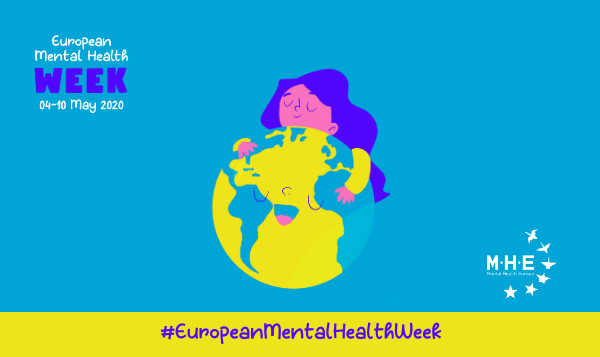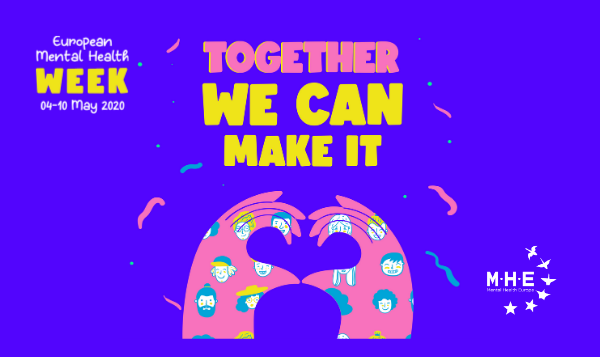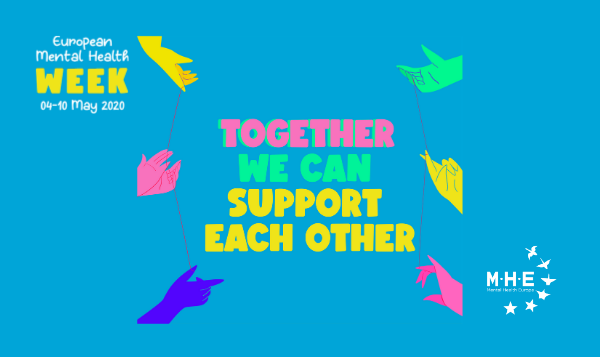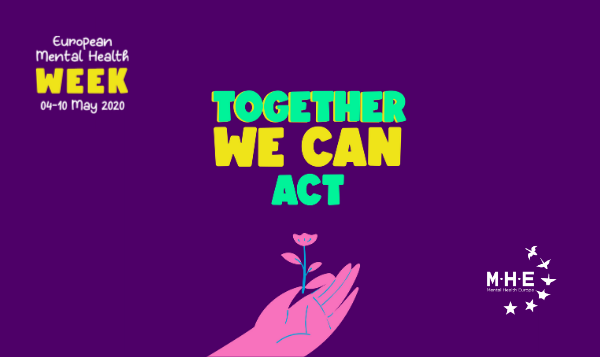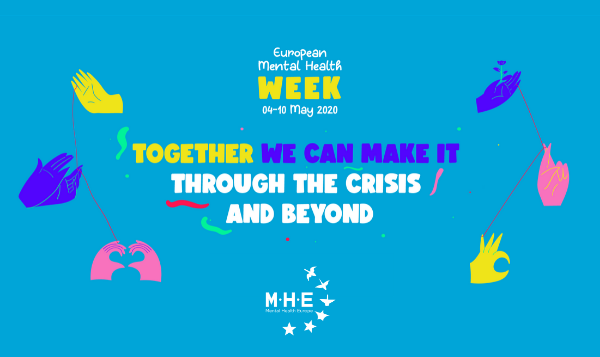Together we can make it
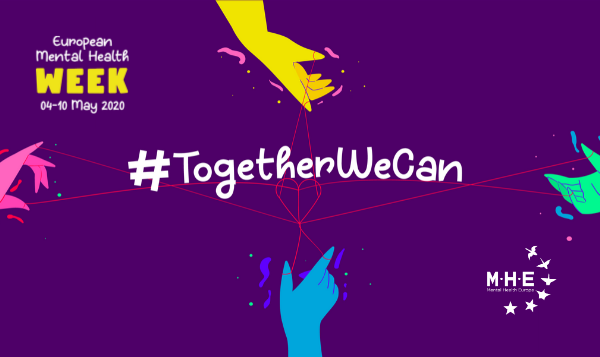
Brussels, 04 May 2020 – Physical distancing, worry and loneliness can take a toll on mental health. Research shows that the emotional impact of isolation, disruption of daily routines and the withdrawal of physical affection can have long-term effects on mental wellbeing. As Covid-19 sparks concerns over an increase in poor mental health, now more than ever it’s important to come together, start conversations, support each other and plan action for the aftermath of the crisis.
Mental Health Europe is hosting the first European Mental Health Week, starting 4 May until 10 May, with a strong message ‘Together We Can Make It’ to promote community, solidarity and hope. The European Mental Health Week will shine a spotlight on the importance of mental health in our everyday lives and inspire action in response to the spike in poor mental health since the Covid-19 outbreak.
“During times of great stress, it is important to seek and receive support from the communities around us, as they play a central role in the quality of our mental health. As we are living now through the biggest health crisis in Europe’s recent history, this bound to have an impact on our mental wellbeing. We all know someone in need of support,” said Dr Claudia Marinetti, Director of Mental Health Europe.
“The European Mental Health Week will underline that now is the time for everyone to focus on mental health. We are all going through this together, and together we can support mental health for all. Our ambition is to turn this Awareness Week into an annual pan-European celebration of awareness and action.”
“We want everyone to get involved, to share stories and support under the hashtag #TogetherWeCan to help us all cope with the impact of the coronavirus pandemic together.”
“We urge EU and national decision-makers to reset mental health policies so that real support and human rights-based care for people in vulnerable situations prevail in future policy making,” Dr Marinetti concluded.
###
- For full details on European Mental Health Week 2020, visit mentalhealtheurope.org/emhw
- Information and resources on COVID-19 and mental health can be found at https://bit.ly/COVID19-MentalHealth
- If you, or someone you know, is struggling with their mental health, see our information on seeking support during COVID-19 at mentalhealtheurope.org/library/helplines
- Every sixth adult, or more than 84 million people, in the European Union was affected by mental ill-health.
- 1 out of 3 people with mental health problems did not have access to mental health care.
- Almost 50% of all mental health problems affecting individuals in adulthood have their onset during adolescence.
- Every 40 seconds, someone in the world loses their life to suicide.
- The total costs of mental ill-health are estimated at more than 4% of GDP. This is more than 600 billion euro across the EU member states.
- Mental health problems are one of the leading causes of absenteeism from work and early retirement all over the European region.
- Mental health is strongly related to the socioeconomic circumstances of people’s lives. Poverty, unemployment, poor working conditions, substandard housing and poor education reduce the well-being and significantly increase the risk of mental ill-health.
Stay connected
Get our latest news, personal stories, research articles, and job opportunities.
